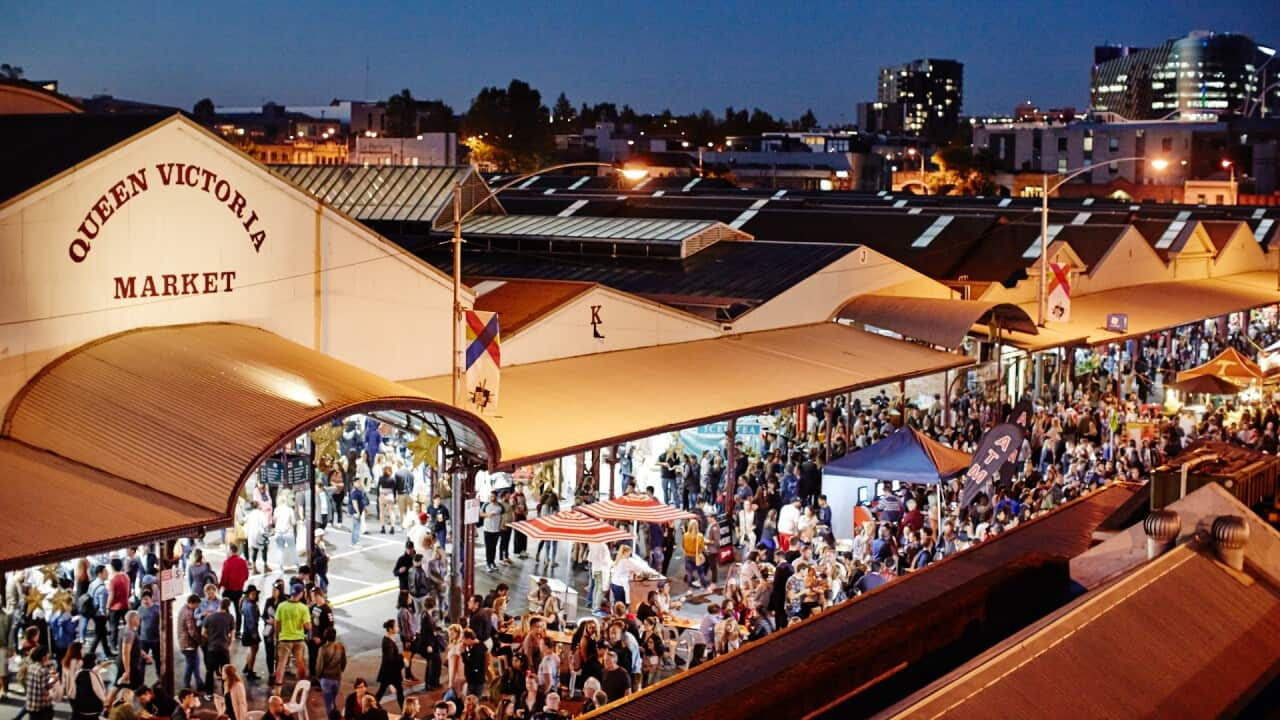Melbourne's famous Queen Victoria Market is known for providing fresh produce and a huge variety of products to its visitors, but the iconic marketplace could soon become a source of energy to surrounding businesses too.
Thanks to the large array of solar panels on the sprawling market's roof and some ingenuity from Brazilian energy startup Fohat, surplus solar energy could soon be stored and more effectively distributed to the likes of market traders, schools and other businesses.
Fohat is currently working with the Queen Victoria Market to help optimise its energy consumption using microgrids and blockchain technology, which it hopes will decentralise energy use in the zone, saving money and resources in the process.
"One software manages the energy consumption and distribution and the other software commercialises the surplus,” says Douglas Ferreira, Fohat's Head of Development.
The company, run by brothers Igor and Douglas Ferreira, recently signed a deal to conduct a microgrid feasibility study on the Queen Victoria Market. The startup aims to create a green energy Queen Victoria Market that is self-sufficient. The plan is to integrate the market’s solar panels with a battery bank energy storage system, so the surplus can be consumed by merchants themselves, public schools in the area or be redirected to the city’s distribution network.
The startup aims to create a green energy Queen Victoria Market that is self-sufficient. The plan is to integrate the market’s solar panels with a battery bank energy storage system, so the surplus can be consumed by merchants themselves, public schools in the area or be redirected to the city’s distribution network.

Igor Ferreira and Renan Schepanski, the team behind the startup: “We want to create an energy community around the Queen Victoria Market" Source: LF/SBSPortuguese
"When you have solar systems and battery you can work on the intelligence of these two systems to see the best time to store the energy in the battery, the best time to dispatch this energy back to the grid. We can bring a lot of energy savings for public buildings, we can also help the network around the market to control frequency or voltage,” said Douglas.
The Queen Victoria Market's refrigeration can be responsible for up to 85 per cent of total energy consumption, and the brothers calculate they can reduce the market's energy consumption by 44 to 64 per cent.
"We projected that the QVM will be able to generate up to 2.4 GWh of energy," says Igor. The startup's model uses blockchain technology to produce peer-to-peer trading, a system that will allow consumers around The Queen Victoria Market to take advantage of the neighbour who produce more energy than they need.
The startup's model uses blockchain technology to produce peer-to-peer trading, a system that will allow consumers around The Queen Victoria Market to take advantage of the neighbour who produce more energy than they need.

Source: QVM
“We are using the same technology behind the cryptocurrency Bitcoin; the blockchain technology allows people to make peer-to-peer transactions and share this information in a decentralised network, the information is public so no one can hack it. We applied this same technology on the energy market, allowing people to trade and manage their power or gas contracts."
The feasibility study was presented to the City of Melbourne during the ‘Startup Bootcamp’, an accelerator program that gives startups access to a network of relevant partners, investors, and mentors in their sector. "During the Startup Bootcamp we showed how we can apply energy efficiency technology on public buildings,” says Renan Schepanski, Fohat's Head of Marketing.
"During the Startup Bootcamp we showed how we can apply energy efficiency technology on public buildings,” says Renan Schepanski, Fohat's Head of Marketing.

Queen Victoria Market Source: Wikipedia
“We chose the Queen Victoria Market because in 2003 they were some of the first to install solar panels in Australia, they also have the biggest roof, they were pretty much innovative at the time but in these last 16 years a lot has changed.”
The brothers founded the startup in 2017 and came to the Australian market to develop new EI [Energy Intelligence] solutions for the sector.
“When it comes to the free energy market, Australia is one of the most mature scenarios in the world. The market was deregulated 20 years ago which brought a lot of competition to the energy sector. The solutions we create here will surely work for other countries,” says Douglas.




